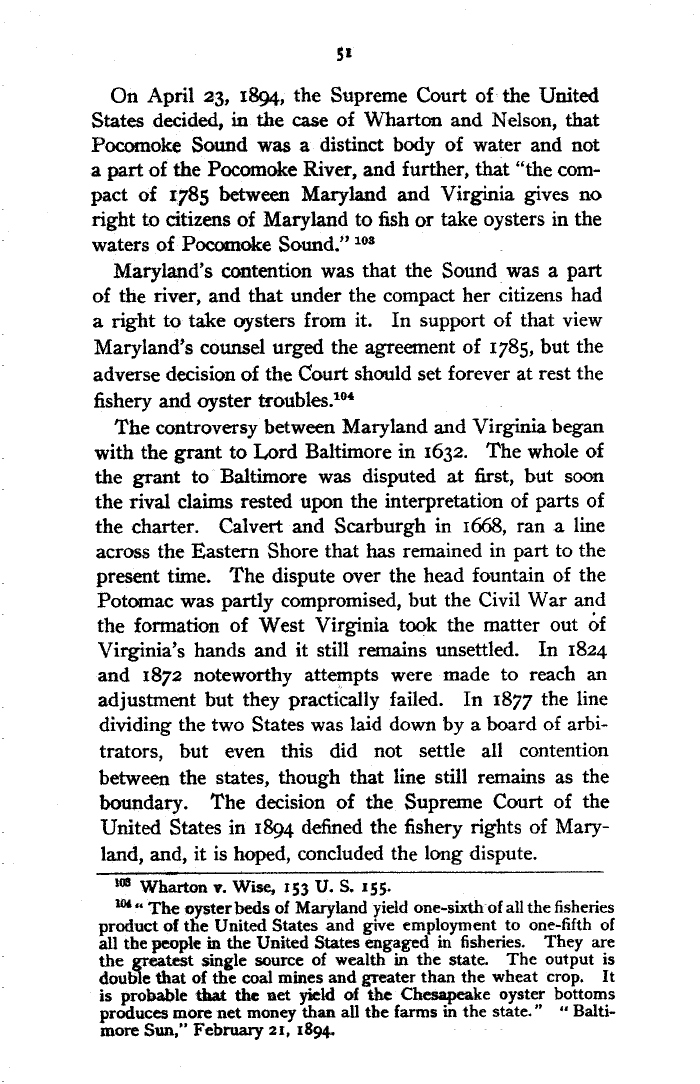| 51
On April 23, 1894, the Supreme Court of the United
States decided, in the case of Wharton and Nelson, that
Pocomoke Sound was a distinct body of water and not
a part of the Pocomoke River, and further, that "the com-
pact of 1785 between Maryland and Virginia gives no
right to citizens of Maryland to fish or take oysters in the
waters of Pocomtke Sound." los
Maryland's contention was that the Sound was a part
of the river, and that under the compact her citizens had
a right to take oysters from it. In support of that view
Maryland's counsel urged the agreement of 1785, but the
adverse decision of the Court should set forever at rest the
fishery and oyster troubles."'
The controversy between Maryland and Virginia began
with the grant to Lord Baltimore in 1632. The whole of
the grant to Baltimore was disputed at first, but soon
the rival claims rested upon the interpretation of parts of
the charter. Calvert and Scarburgh in 1668, ran a line
across the Eastern Shore that has remained in part to the
present time. The dispute over the head fountain of the
Potomac was partly compromised, but the Civil War and
the formation of West Virginia took the matter out of
Virginia's hands and it still remains unsettled. In 1824
and 1872 noteworthy attempts were made to reach an
adjustment but they practically failed. In 1877 the line
dividing the two States was laid down by a board of arbi-
trators, but even this did not settle all contention
between the states, though that line still remains as the
boundary. The decision of the Supreme Court of the
United States in 1894 defined the fishery rights of Mary-
land, and, it is hoped, concluded the long dispute.
'°a Wharton v. Wise, 153 U. S. 155.
106 " The oyster beds of Maryland yield one-sixth-of all the fisheries
od t e n a ' nd e of
ga
Pr C Of th U *t~ St t's ~
peo ited Stale's
I' the oe e U~ e of wealth .1 is
e mg e so i = gr .
e n s d eater it
doub I Tt f 6 WA M F d th
th t 0
Pu; lh~ y
ID le net 'el e C s
od es mor'el money than all the farms m the state." " Ba~ti-
mom Sun," February 2 I, IS94.
|

